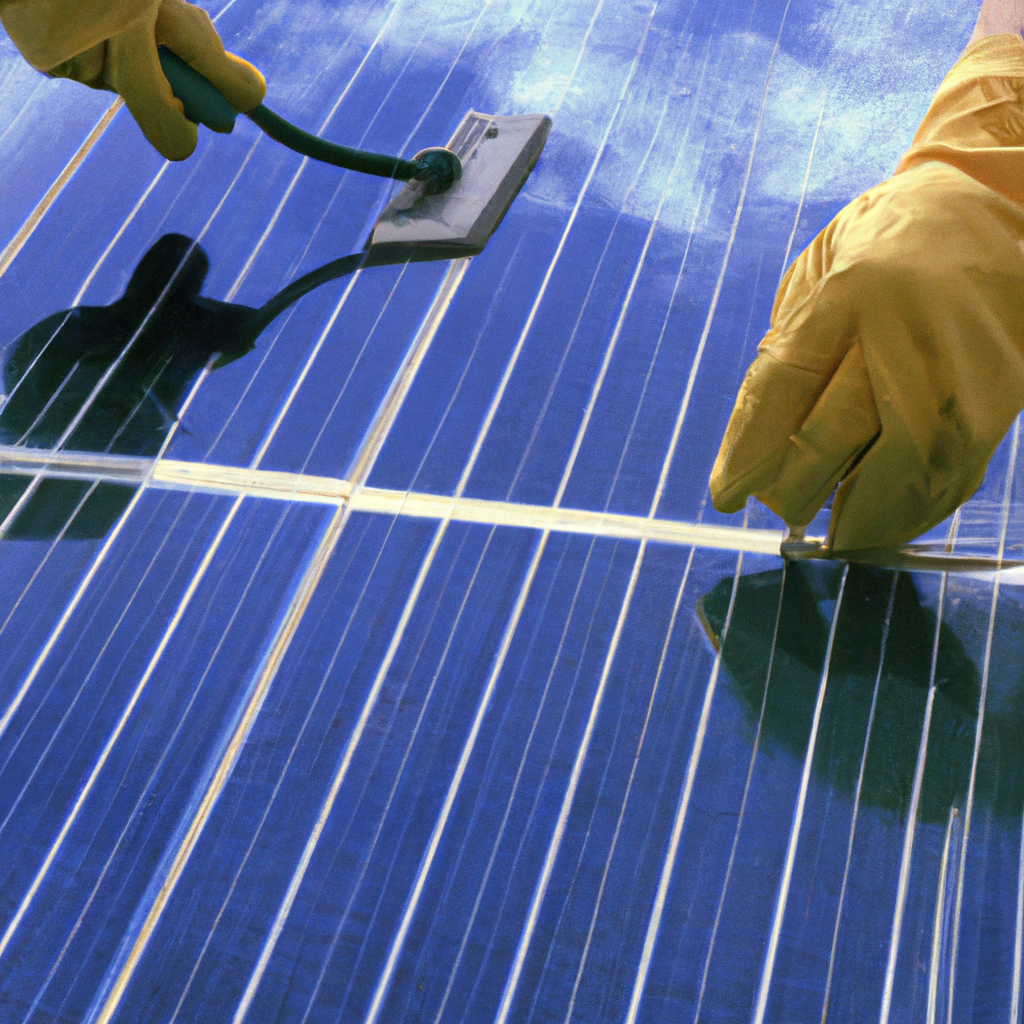How To Clean Solar Panels: Tips and Tricks
As an Amazon Associate, I earn from qualifying purchases, at no additional cost to you. Disclaimer
I’ve noticed so many people investing in solar panels these days, taking advantage of the renewable and sustainable energy source that nature provides us. But to ensure these panels work efficiently for the longest time possible, proper maintenance is crucial. To help you with that, I’ve jotted down some practical and easy steps on how to clean solar panels, emphasizing the best tools and techniques to adopt, as well as the safety measures to bear in mind. Let’s get right to it, shall we?
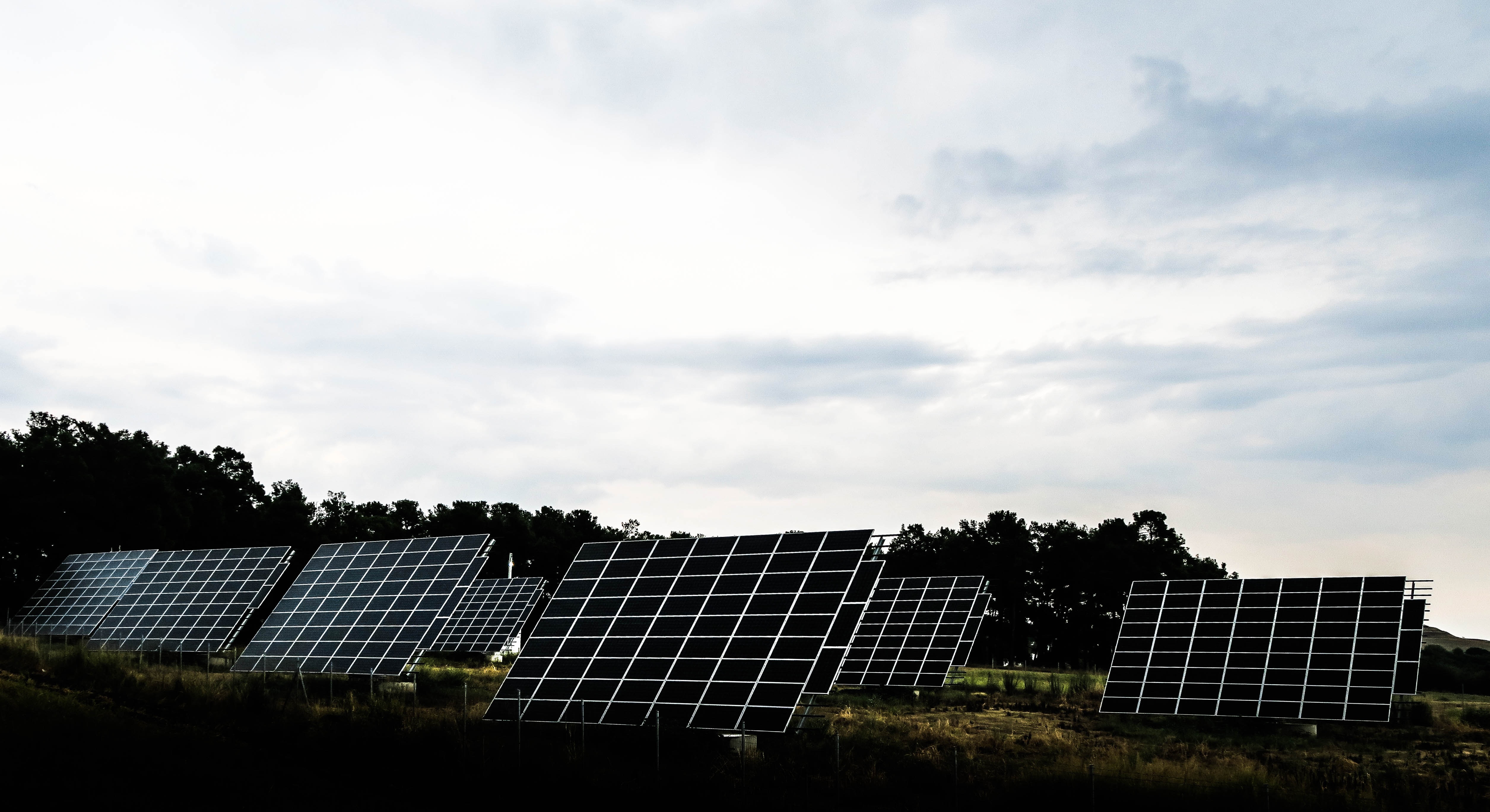
Importance of Cleaning Solar Panels
Solar panels are our pathway to renewable energy, harnessing the endless power of the sun to create electricity for our homes and businesses. However, like any other piece of equipment, they need to be kept clean to work at their best. Over time, dust, dirt, and bird droppings can accumulate on the surface of your solar panel, reducing its ability to capture sunlight and its overall efficiency. This is why cleaning and maintaining your solar panels are crucial.
Reasons to clean solar panels
Cleaning solar panels can significantly improve their functionality. It ensures that they produce the maximum amount of electricity, ultimately saving you money on your power bill. Clean panels also last longer since dirt and dust buildup can gradually degrade them, resulting in costly repairs and replacements over time.
Impact of dirt on solar panels’ efficiency
Dirt, dust, pollen and bird droppings that build up on your solar panels, hamper their ability to absorb sunlight. The reduced sunlight intake lessens their efficiency and impacts their power output. Therefore, to keep your solar energy system functioning optimally, regular cleaning is crucial.
Frequency of cleaning
The frequency of cleaning your solar panels varies depending on your location. In dusty or polluted areas, cleaning may be required every few weeks. In contrast, for areas with moderate pollution and rainfall, cleaning every several months could be enough. However, regular checks help you keep an eye on the condition of your panels and clean them as necessary.
Understanding the Composition of Solar Panels
To effectively clean and maintain your solar panels, understanding their structure and composition is integral.
Materials used in solar panels
Solar panels are generally made up of several solar cells, which in turn contain layers of semiconductor materials (like silicon). These cells are encased in a metal frame, usually aluminum, and covered with a plate of glass to protect them from the elements.
Understanding solar panel surface
The solar panel surface is manufactured specifically to conduct sunlight most efficiently. This surface is usually smooth and shiny, making it easy for dirt and debris to stick to it, blocking a significant amount of sunlight.
How dust and dirt accumulate on solar panels
Dirt and dust typically accumulate as a result of air pollution and natural elements such as wind. The vertical tilt of most solar panels makes them susceptible to dirt and dust buildup, especially if they are installed in an open area and exposed to the environment.
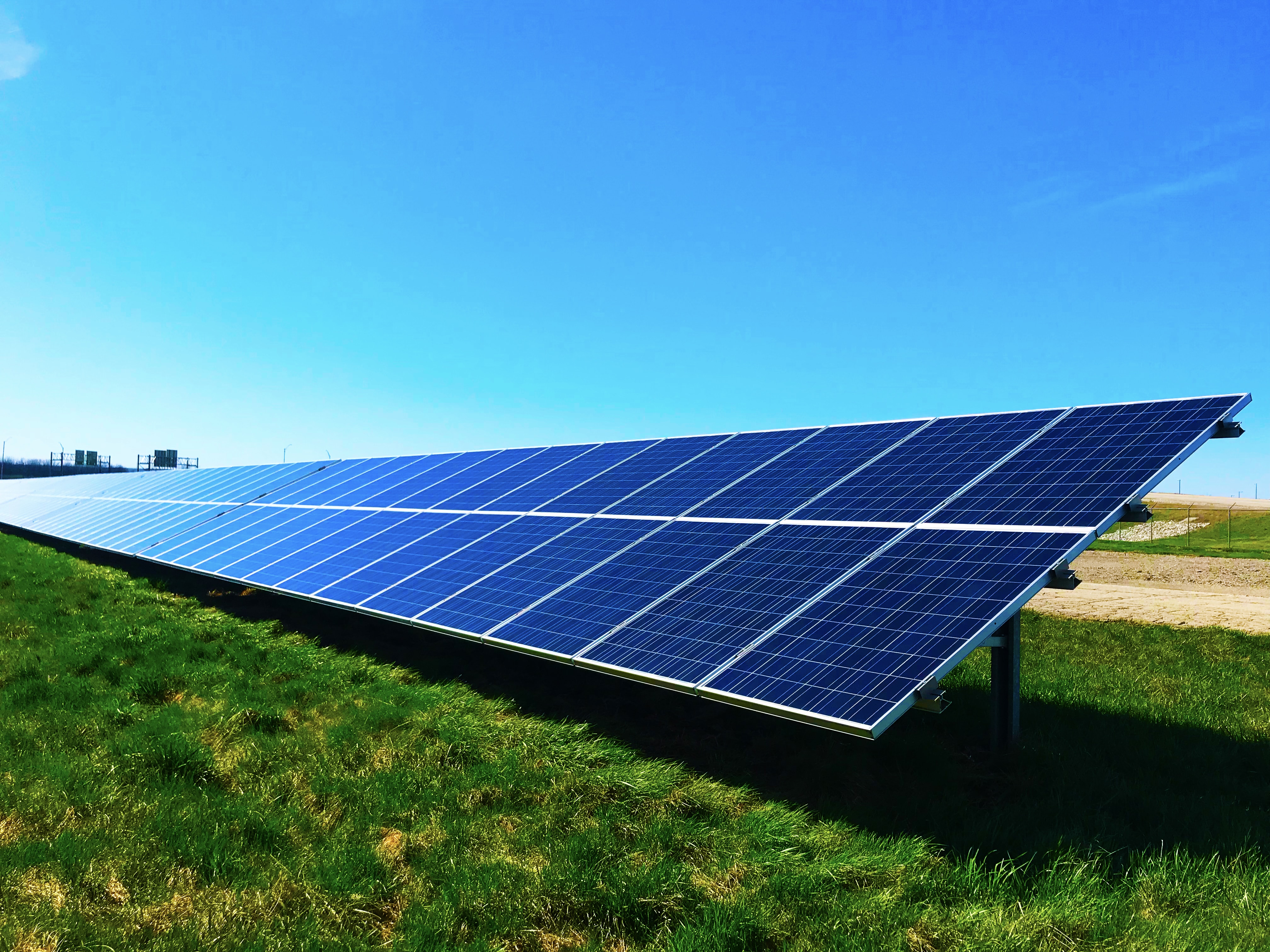
Safety Precautions
When it comes to cleaning your solar panels, safety is paramount.
Safety measures to follow
Always make sure to turn off your solar panels before cleaning them and avoid cleaning them on extra hot days to avoid the risk of burns. If your panels are up on a roof, ensure that you use proper caution to prevent falls.
Best time of day to clean solar panels
The optimal time to wash your solar panels is early in the morning or late in the evening, when they are unlikely to be extremely hot. You could also choose an overcast day to make the job easier.
Using appropriate safety gear
Always ensure you’re wearing the right safety gear. Non-slip shoes, long-sleeved shirts, and eye protection help shield you from potential hazards involved with cleaning solar panels.
Cleaning Products
Choosing the right cleaning product for your solar panels is key to maintaining their longevity and efficiency.
Ideal cleaning solutions
The ideal cleaning solution for solar panels is often simple: warm water with mild soap. This is gentle on your solar panels and won’t cause any damage to their surface.
Avoiding abrasive cleaners
Avoid any cleaning product that contains abrasive materials as this can scratch and damage the solar panel surface, reducing their efficiency.
Homemade cleaning solutions
For those who prefer a DIY approach, a homemade cleaning solution of water and vinegar often does the trick. This mixture is natural, non-abrasive, and great for removing accumulated dirt and grime.
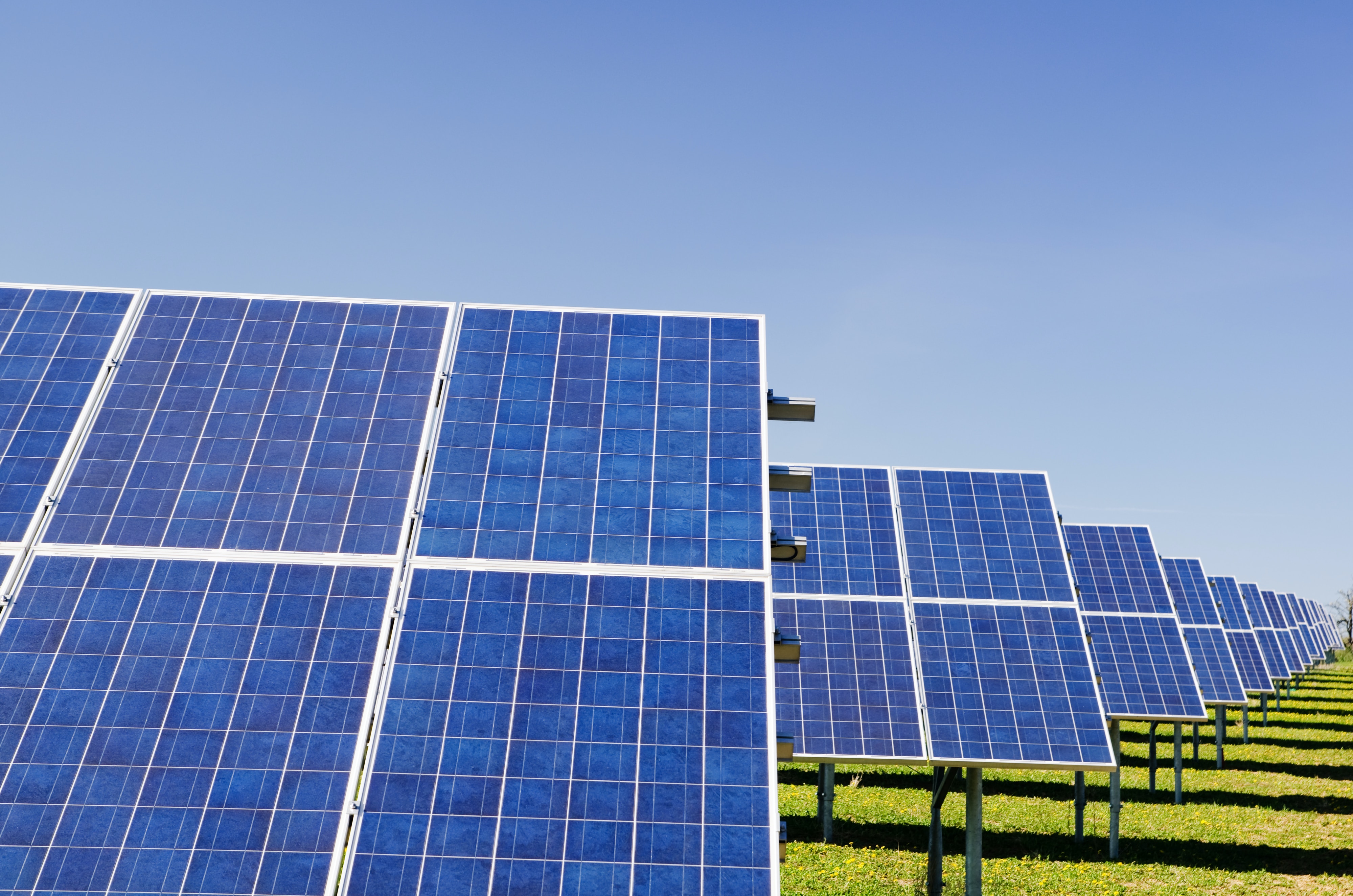
Cleaning Tools
The right tools can make the task of cleaning solar panels more manageable and safe.
Suitable cleaning tools for solar panels
A bucket, a soft brush or a sponge, and a squeegee are typically all you need to clean your solar panels effectively.
Choosing a soft brush
A soft brush helps loosen dirt and grime without scratching the glass surface. A brush with long handle also makes it easier to reach the entire panel surface.
When to use a long-handled squeegee
A long-handled squeegee is useful for wiping away the soapy water after scrubbing. This ensures that no residue remains, which could cause streaking when it dries.
Step-by-step Guide to Cleaning Solar Panels
Now that we have learned why it’s essential to clean solar panels, let’s delve into the process of how you can effectively clean them.
When to wet the solar panels
Begin by wetting your solar panels with water. This helps soften and remove loose dirt and debris, making the cleaning process easier.
Applying cleaning solution
Once the panels are wet, apply your cleaning solution (soap and warm water or vinegar solution). Let it sit for a few minutes to soften the dirt and grime further.
Scrubbing and removing dirt
After a few minutes, gently scrub, using your soft brush or sponge, to remove the dirt. Be careful not to put too much pressure to prevent inducing any damage.
Rinsing off the cleaning solution
After scrubbing, rinse off your panels using a hose. If your hose has a spray nozzle, use a light setting to avoid damaging the panel glass.
Drying solar panels
Finally, use your squeegee to dry the panels. Ensure you remove all the water to leave your panels looking clean and shiny.
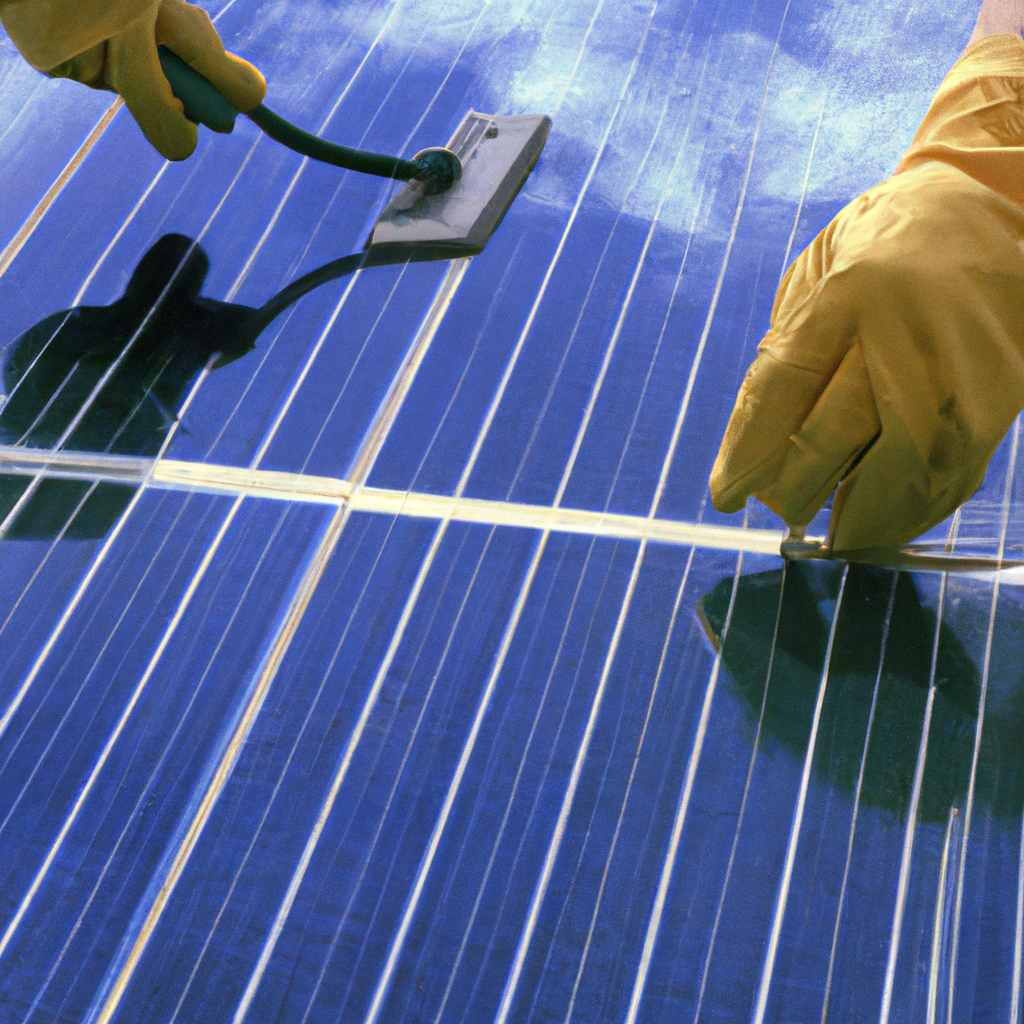
Professional Cleaning Services
While cleaning solar panels can be a DIY task, there are certain situations where professional cleaning services may be necessary.
Why consider professional cleaning services
Professional solar panel cleaners are trained to clean in a way that won’t breach your panels’ warranty. They typically have the necessary tools and safety equipment, especially useful if your panels are in a hard-to-reach or dangerous location.
Choosing a reliable solar panel cleaning company
When choosing a professional cleaning service, consider their reputation, experience, and customer reviews. You should also inquire about their cleaning methods to ensure they follow appropriate measures.
Costs associated
The cost of professional solar panel cleaning varies based on the number of panels, their location, and the amount of dirt. Though it might seem like an additional expenditure, considering it an investment can save you from any damage-related expenses in the future.
Do’s and Don’ts of Solar Panel Cleaning
To ensure you keep your panels working optimally, consider the following:
Things to avoid during solar panel cleaning
Don’t use hard water, as it can leave mineral deposits on your panels. Avoid using abrasive scrubbing tools that could scratch the surface. Don’t clean during the hottest part of the day to avoid thermal shock, which can damage the panels.
Recommended practices in solar panel cleaning
Do use softened water when cleaning. Always handle your solar panels gently to prevent damage. Remember to clean the underside of the panels if accessible.
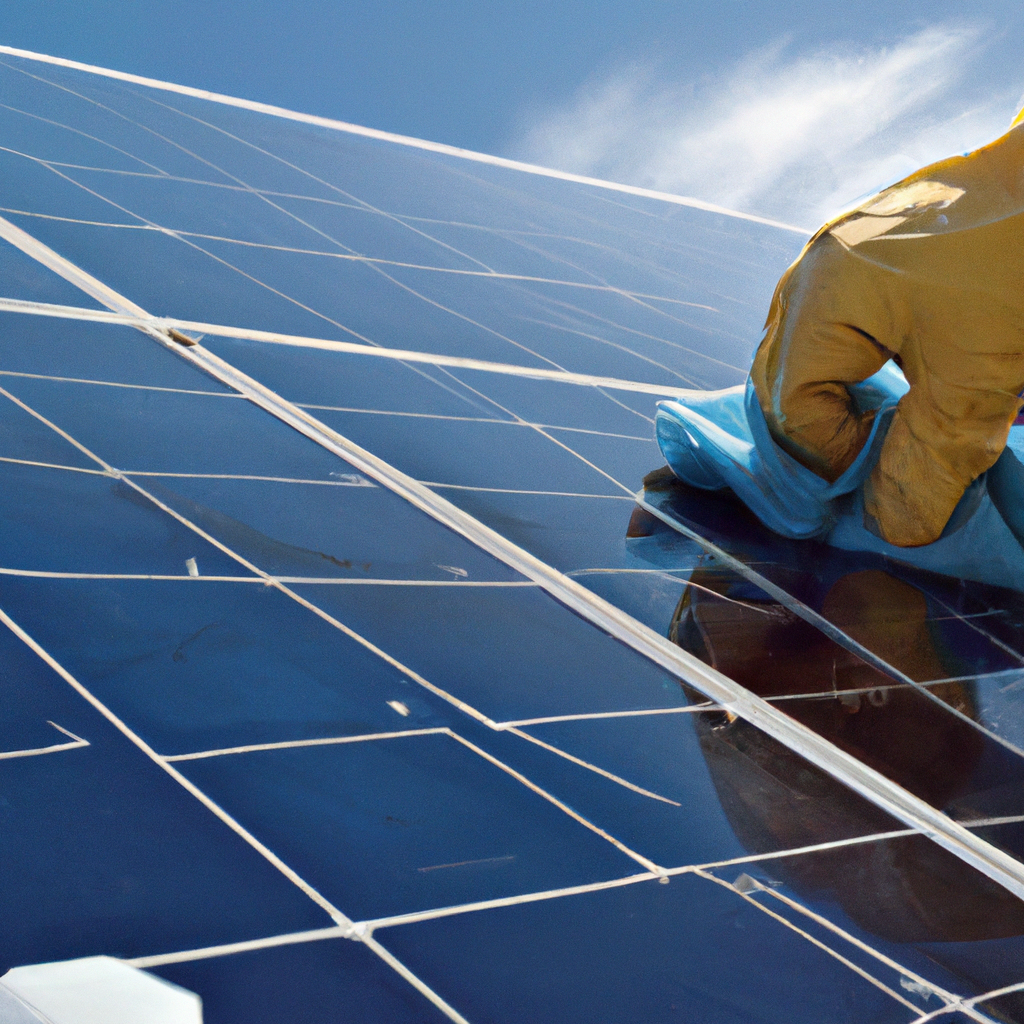
Maintenance of Solar Panels
Regular maintenance is key to keeping your solar panels working efficiently.
Importance of regular maintenance
Regular maintenance helps to extend your panels’ lifespan and keep them functioning at maximum capacity. This includes cleaning and periodic checks for any signs of damage.
Tips for solar panel maintenance
Regularly inspect your panels for any visible signs of damage or deterioration. Check the electrical system to ensure everything is working as it should. Trim overhanging branches to prevent shading and minimize the risk of damage from falling debris.
How to check for solar panel damage
Look for cracks, chips or discoloration on the glass. Check for signs of animal damage, and make sure the panels are securely mounted and free from rust or corrosion.
Conclusion
Hopefully, this comprehensive guide has provided you with everything you need to know about cleaning solar panels. Remember, keeping your solar panels in top shape is one of the most effective ways to benefit from the power of the sun. Have a regular cleaning schedule, use the right materials and tools, observe safety measures, and consider hiring professionals when necessary.

